A joint dialogue session between the Faculty of Business, the Union for the Mediterranean and the European Investment Bank at the annual conference of Ain Shams University "Knowledge Economy for a Better Life"
The Faculty of Business held a joint session with the Union for the Mediterranean (UfM) and the European Investment Bank (EIB) at the eleventh annual conference of Ain Shams University "Knowledge Economy for a Better Life". Growth in small and medium enterprises and their role in economic development for a better life. The session was moderated by Prof. Khaled Kadri, Dean of the Faculty of Business, Prof. Hayam Wahba is Professor of Investment and Vice Dean of the Faculty of Business for Postgraduate Studies and Research.
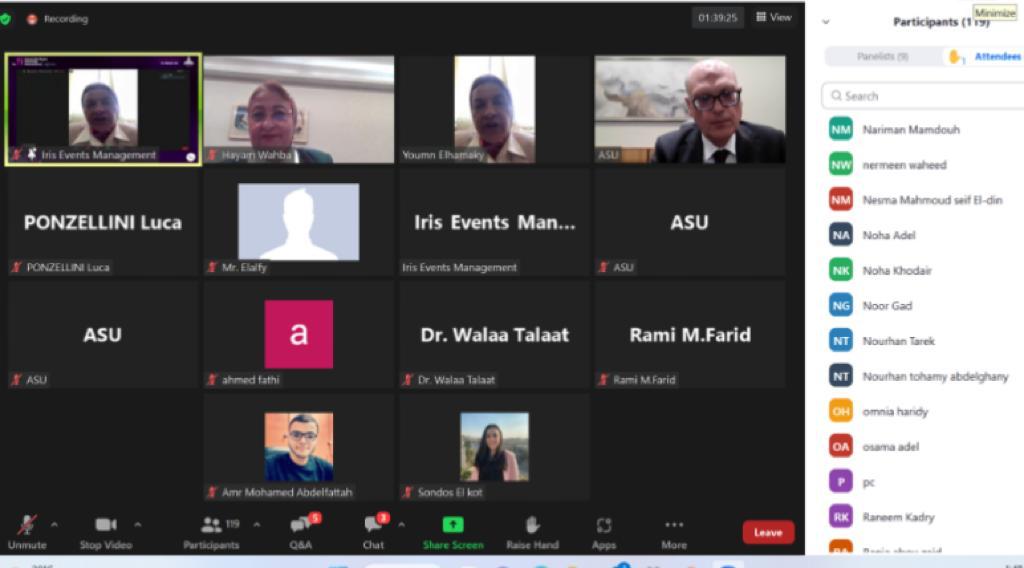 |
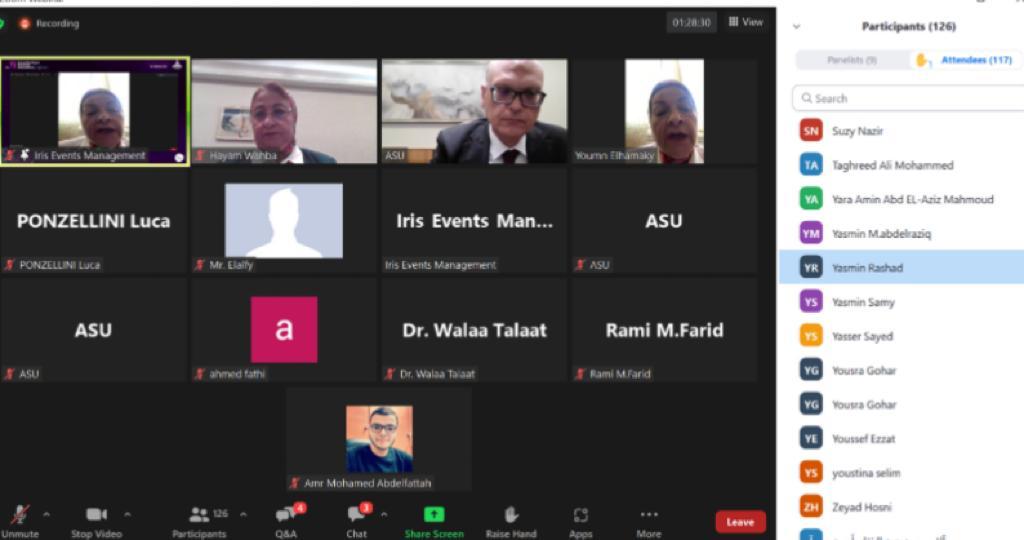 |
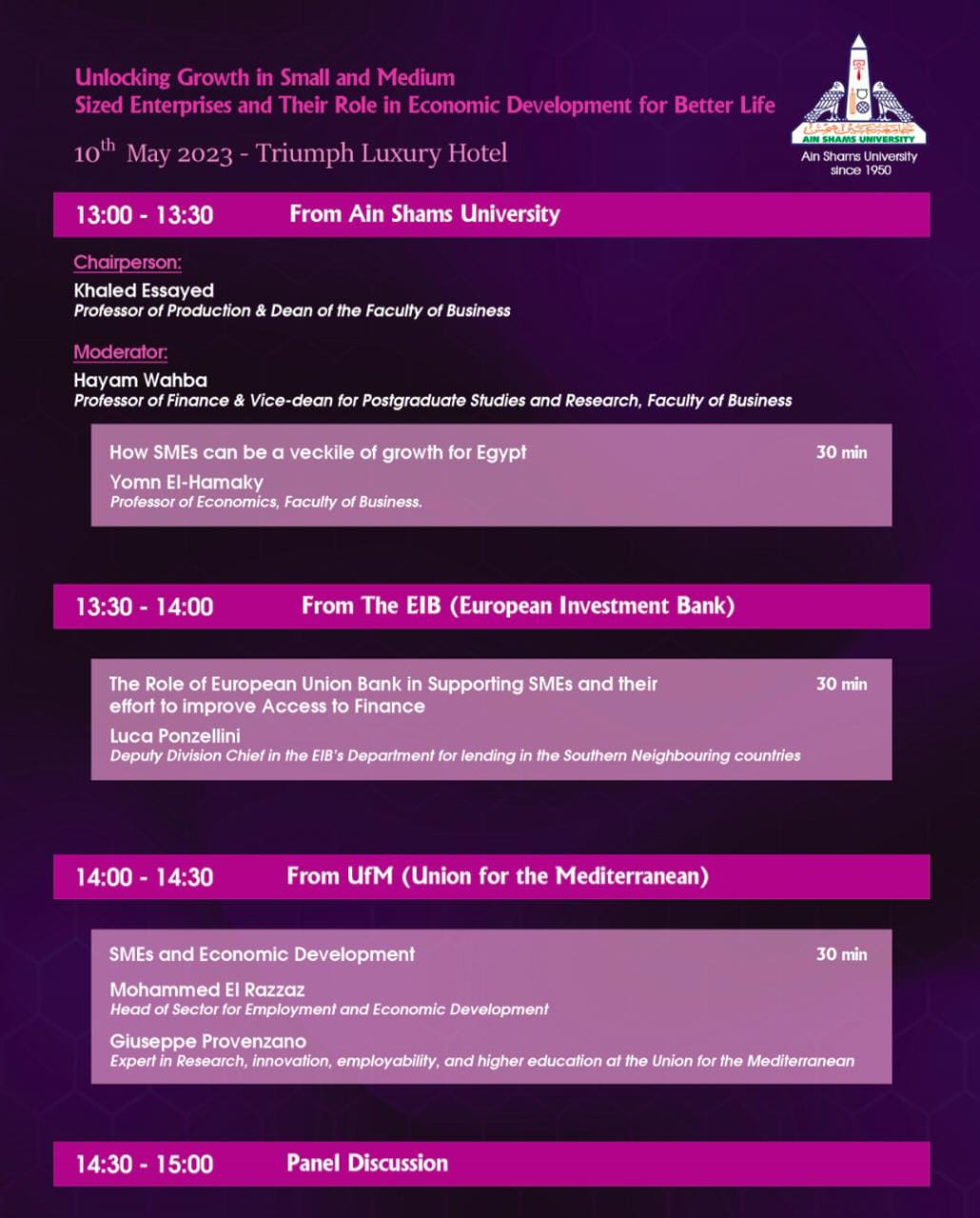 |
||
Mr. Luca Ponzelini, Deputy Lending Department of the European Investment Bank in the Southern Neighborhoods, participated and spoke about the EIB's activities in supporting private sector business with a focus on small and medium enterprises - outside the European Union.
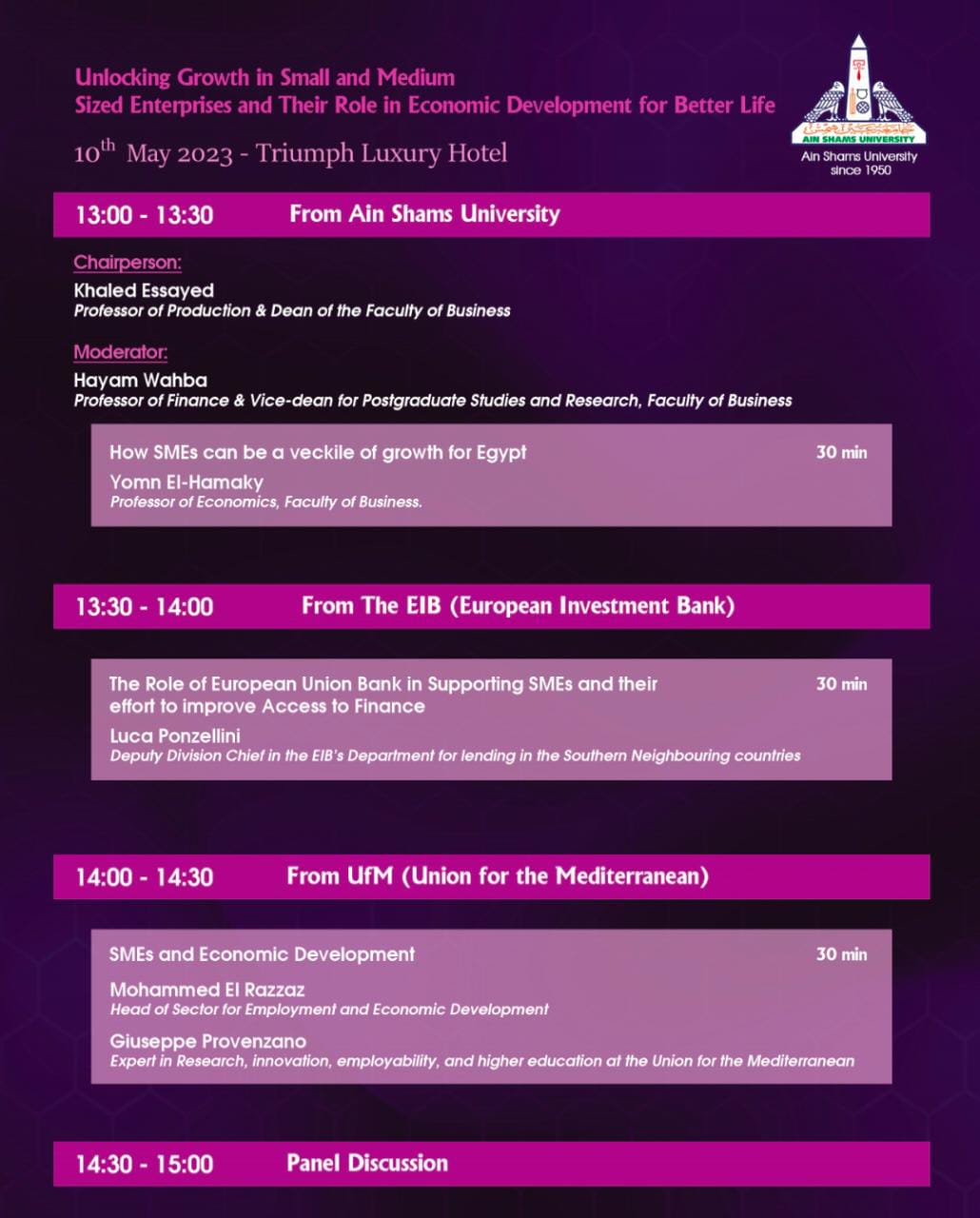 |
 |
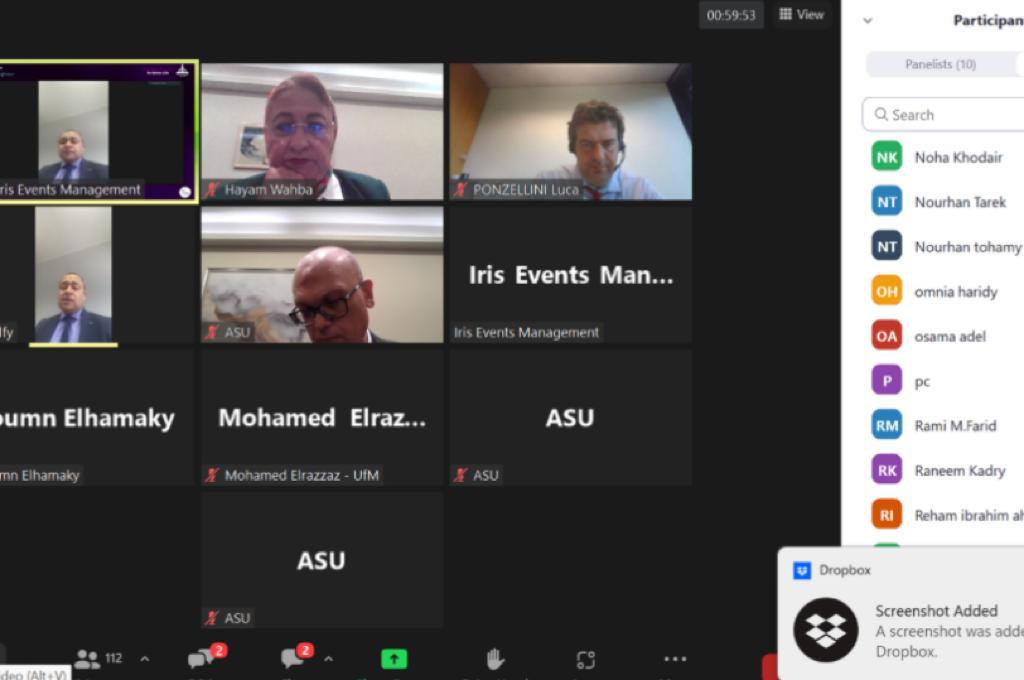 |
||
In his speech, Mr. Mohammed El Razzaz, Head of Employment and Economic Development Sector of the Union for the Mediterranean (UfM), discussed the efforts of the Union for the Mediterranean to promote small and medium enterprises in the Euro-Mediterranean region, with a focus on the Med4Jobs initiative of the Union for the Mediterranean.
 |
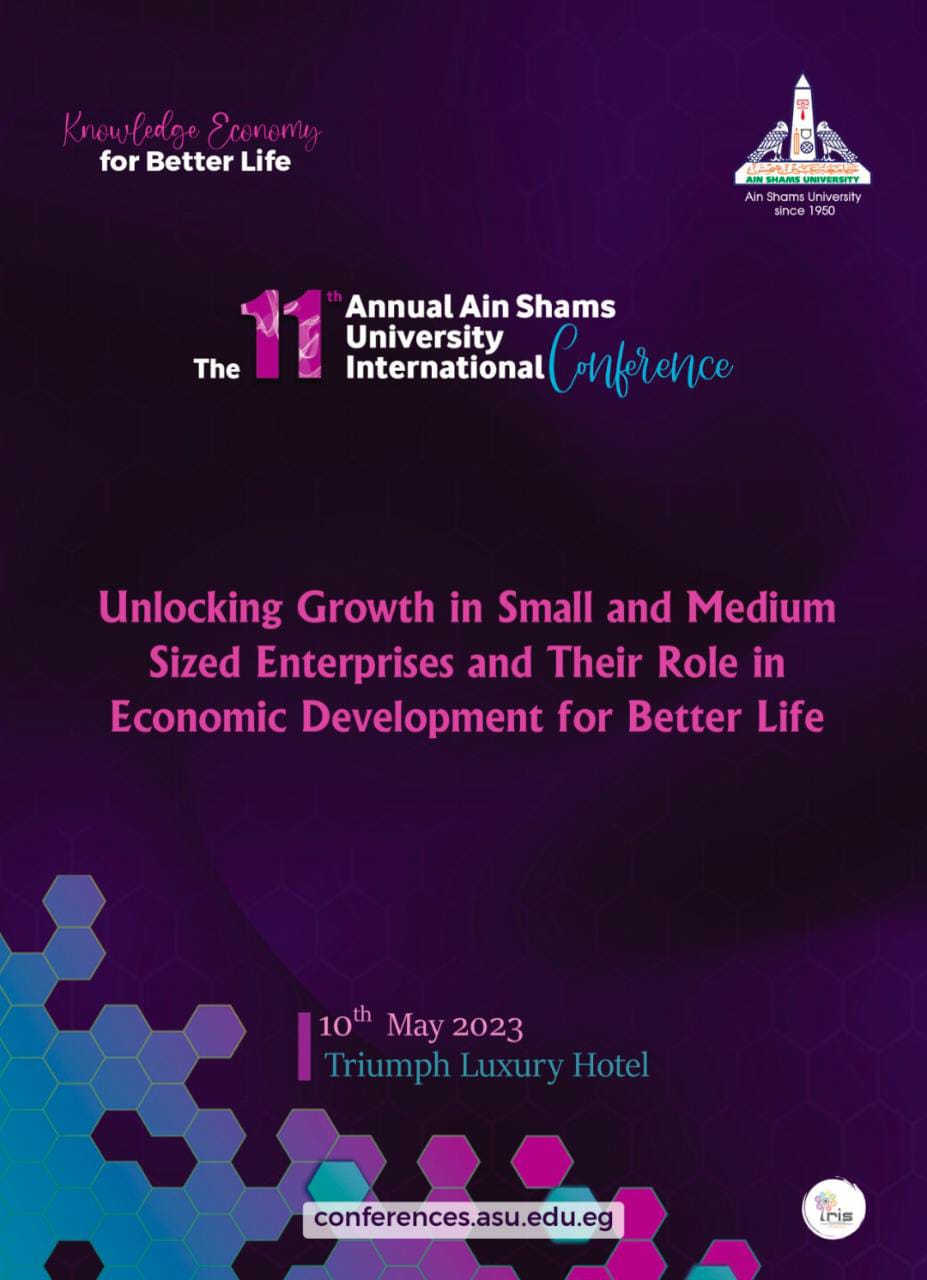 |
 |
||
Prof. Yaman El-Hamaky is Professor of Economics at the Faculty of Business, at Ain Shams University, presented a road map showing how SMEs can be a vehicle for growth in Egypt.
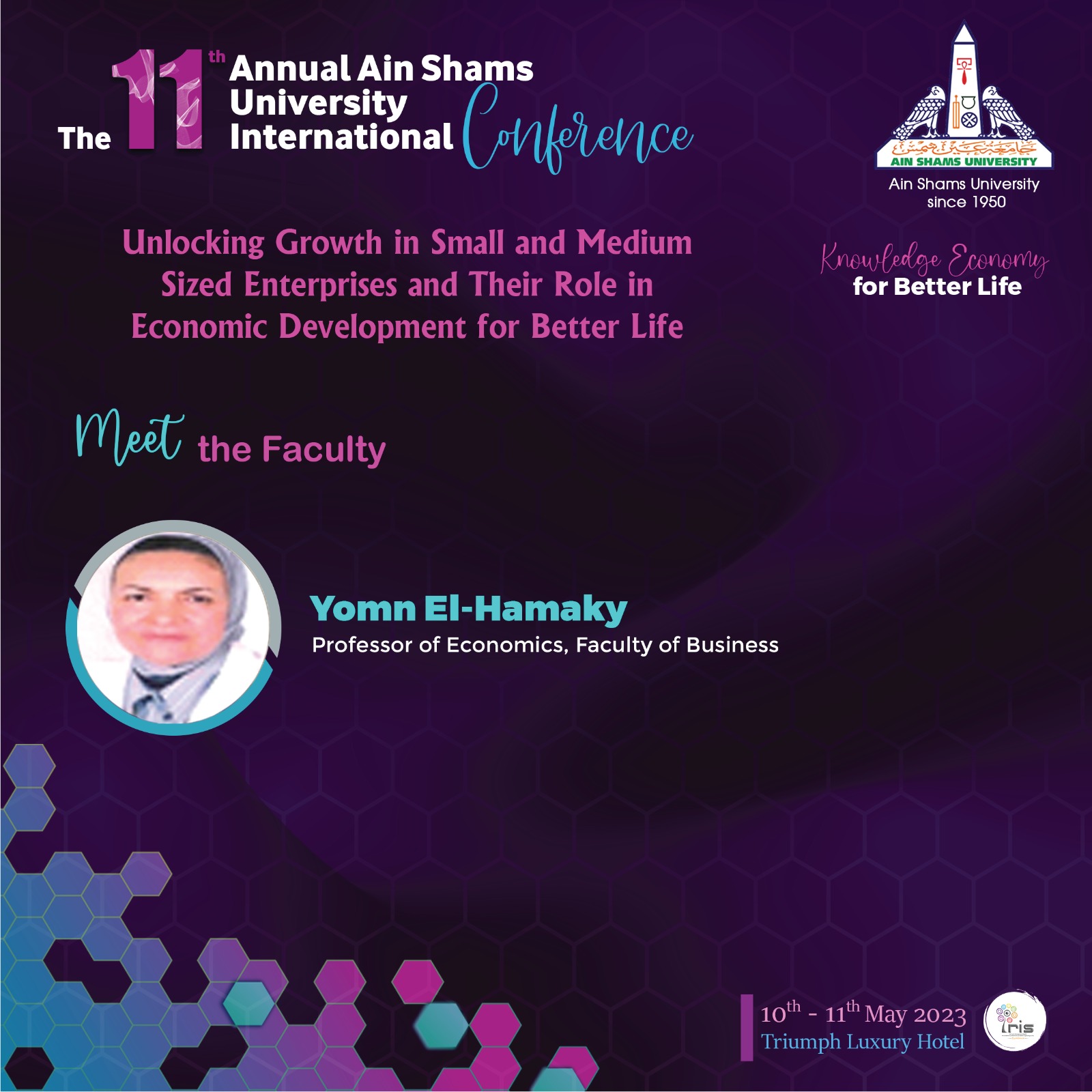 |
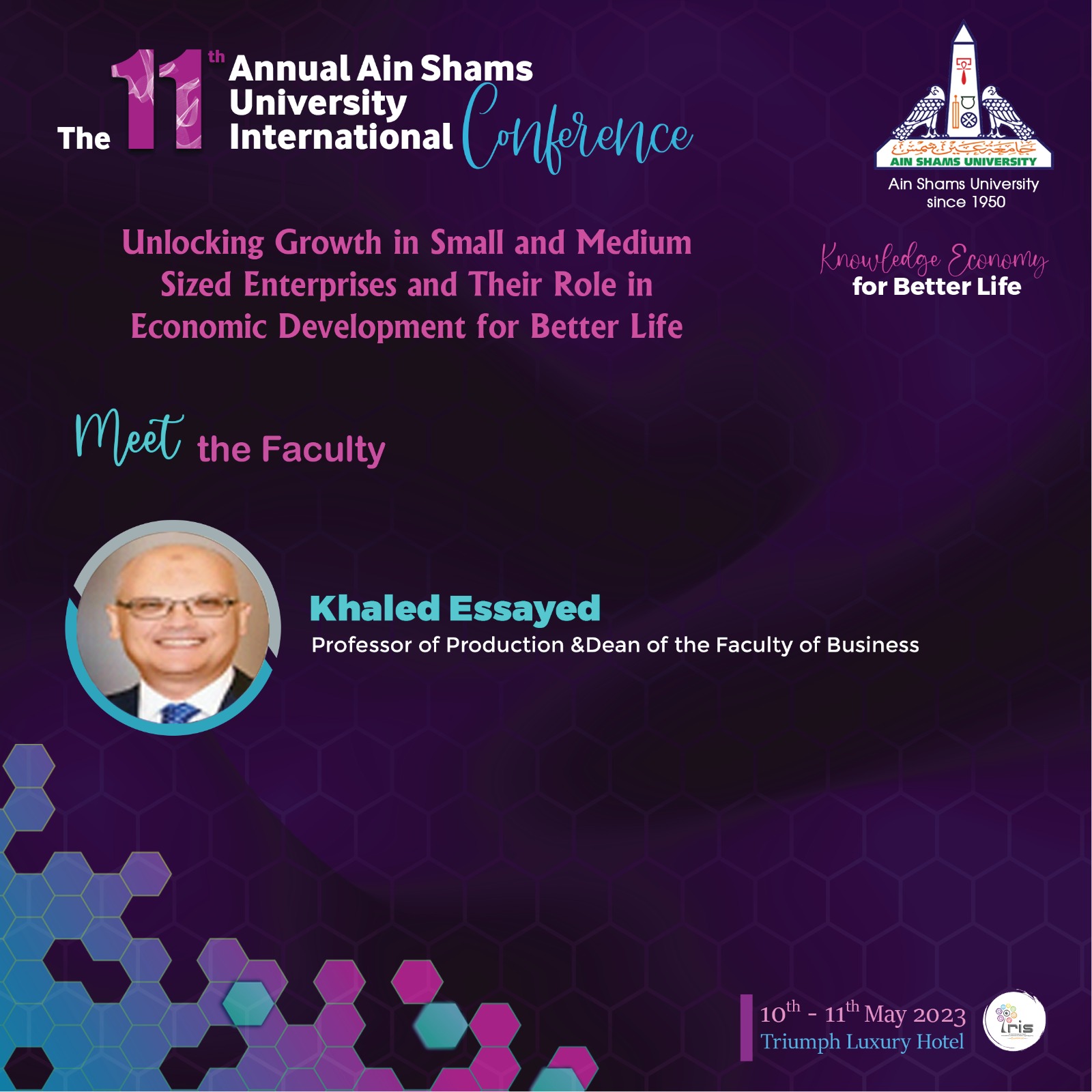 |
 |
||
Also, Mr. Amr El Alfy, Financial Analyst and Head of Research at Prime Securities, a subsidiary of Prime Holding and a member of the Council of Analysts Association in Egypt (CFA Society), presented a detailed presentation of each of the challenges and opportunities facing small and medium-sized companies in Egypt, while presenting many suggestions that would overcome these obstacles, and invest in the available opportunities.
Through mutual discussions, proposed visions, questions and inquiries presented by the attendees, a set of recommendations were concluded that would work to support and enhance growth in small and medium enterprises and their role in economic development for a better life, which was: Adopting an integrative approach in dealing with the problems facing Small and medium-sized companies and not to think only about providing financing sources for these companies, and to localize small and medium-sized companies in a manner that works to achieve sustainable development at the national level and without prejudice to the global trend, in addition to providing rehabilitation programs and support initiatives for small and medium-sized companies to work in light of the knowledge economy. This ensures the provision of distinctive competitive capabilities for these companies, which are reflected in increasing economic growth, especially in emerging markets and developing countries.
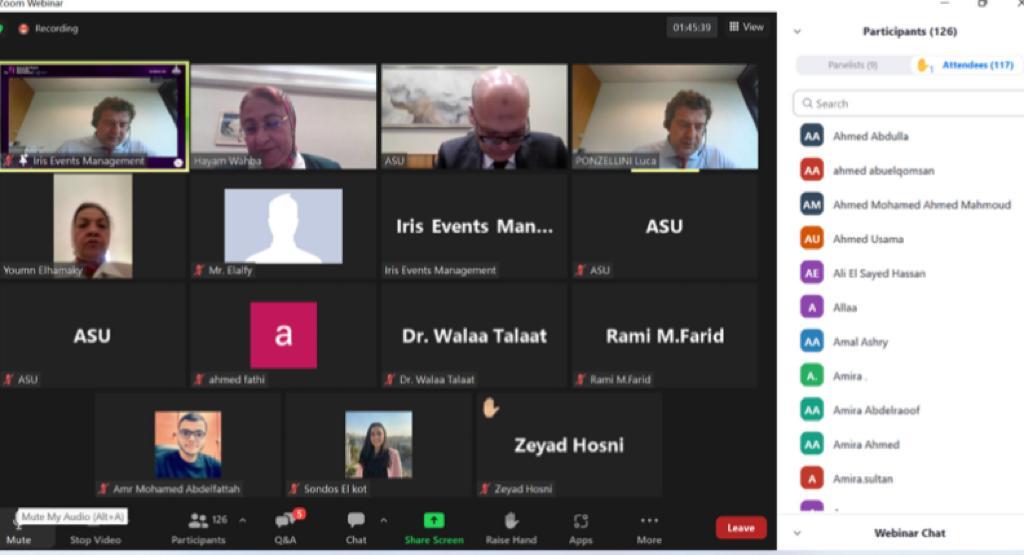 |
 |
|||


.svg)




